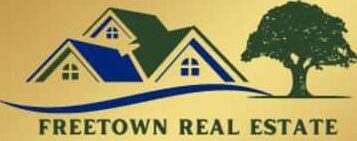The real estate market offers a wide range of skills that individuals can learn and develop for various roles within the industry. Here are some key skills you can acquire in the real estate market:
- Property Valuation: Learn how to assess the value of properties accurately. This involves understanding market trends, property condition, location, and comparable sales.
- Market Analysis: Develop the ability to analyze real estate markets, including identifying emerging trends, market supply and demand, and local economic factors that can affect property values.
- Negotiation Skills: Effective negotiation is crucial in real estate. Learn how to negotiate deals, price reductions, and terms that benefit your clients.
- Communication Skills: Strong communication skills are essential for interacting with clients, colleagues, and other industry professionals. This includes active listening, explaining complex concepts clearly, and maintaining open lines of communication.
- Marketing and Advertising: Understand how to market properties effectively, both online and offline. This may involve creating listings, utilizing social media, and employing traditional marketing strategies.
4 Negotiation Skills: Effective negotiation is crucial in real estate. Learn how to negotiate deals, price reductions, and terms that benefit your clients.
5 Communication Skills: Strong communication skills are essential for interacting with clients, colleagues, and other industry professionals. This includes active listening, explaining complex concepts clearly, and maintaining open lines of communication.
6 Marketing and Advertising: Understand how to market properties effectively, both online and offline. This may involve creating listings, utilizing social media, and employing traditional marketing

- Financial Analysis: Develop financial analysis skills to evaluate the financial feasibility of real estate investments. This includes calculating returns, cash flow projections, and ROI.
- Legal Knowledge: Gain a basic understanding of real estate laws and regulations in your jurisdiction. This includes contracts, property rights, and zoning laws.
- Property Management: Learn the ins and outs of property management, including tenant screening, lease agreements, maintenance, and rent collection.
- Networking: Building a strong network of industry contacts is crucial in real estate. Attend industry events, join real estate associations, and connect with other professionals.
- Customer Service: Excellent customer service skills are essential for building and maintaining client relationships. Providing a positive experience for buyers and sellers can lead to referrals and repeat business.
- Technology Proficiency: Stay up-to-date with real estate technology and software used for property listings, market analysis, and customer relationship management (CRM).
- Time Management: Real estate professionals often juggle multiple clients and transactions simultaneously. Effective time management is essential to meet deadlines and deliver results.
- Adaptability: The real estate market can be dynamic, and conditions can change rapidly. Being adaptable and able to pivot in response to market shifts is a valuable skill.
- Risk Management: Understand and manage the risks associated with real estate transactions. This includes identifying potential pitfalls and implementing strategies to mitigate them.
- Ethical Conduct: Uphold high ethical standards in all your dealings. Real estate professionals often adhere to a code of ethics established by industry organizations.
- Research Skills: Conduct thorough research on properties, neighborhoods, and market trends to provide clients with accurate information and guidance.
- Marketing Skills: Learn how to market yourself as a real estate professional. This includes building a personal brand, creating a strong online presence, and utilizing marketing tools effectively.
- Financial Literacy: Develop a strong understanding of financial concepts related to mortgages, financing options, and investment analysis.
- Crisis Management: Be prepared to handle unexpected challenges that may arise during real estate transactions, such as title issues, inspections, or financing problems.
- Continuous Learning: The real estate market is constantly evolving. Commit to ongoing education and professional development to stay current with industry trends and regulations.
Remember that the specific skills you need may vary depending on your role within the real estate industry. Whether you’re a real estate agent, broker, investor, property manager, or developer, continuous learning and skill development are key to success in this dynamic field.














